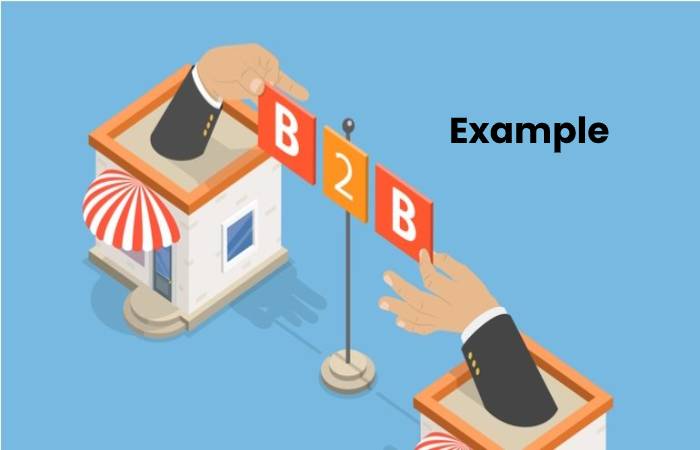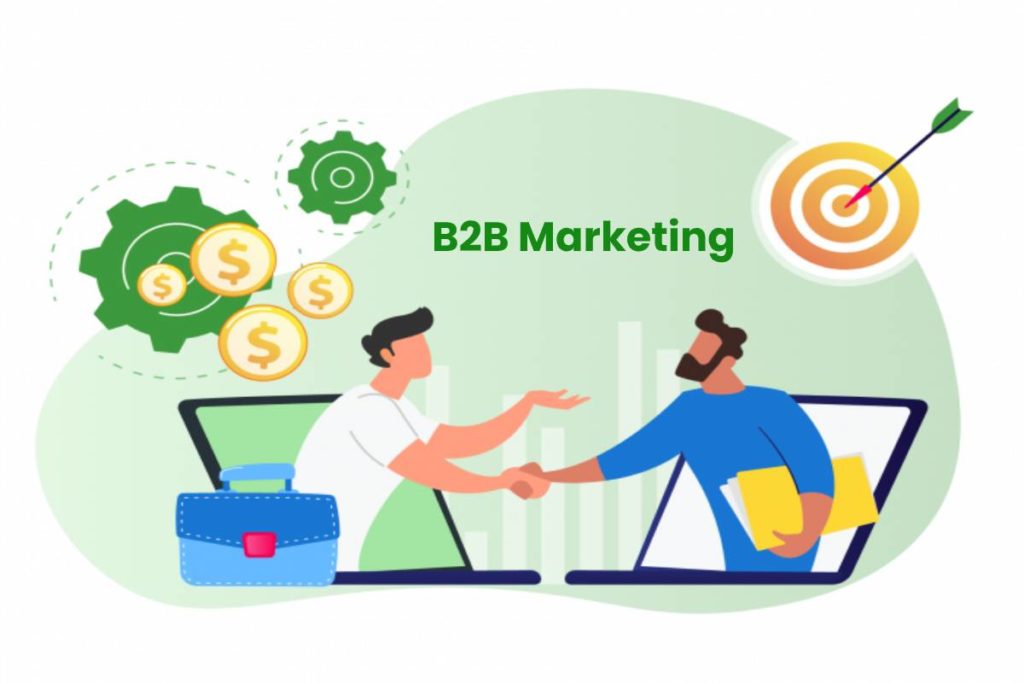Table of Contents
What is B2B Marketing?
B2B Marketing is based on sales between companies, instead of sales between company and client.
It brings together all that market that takes place between companies, which sell their services and products to others so that they, in turn, can get something to their customers.
It is that definition that makes the term B2B refer to Business to Business. Its counterpart is B2C marketing, which Oriente to the business model between company and consumer.
Both have several points in common and a completely different goal for talking about the target audience. It can be more complicated than marketing aimed at the domestic consumer since companies.
What are the Uses of B2B Marketing?

B2B Marketing has several uses, although the first and foremost is to supply other companies with the products or services they need to develop their activity.
Indirectly, also, it serves so that, when a domestic customer approaches a business to satisfy demand, it can offer them an offer that is useful and, for example, does not have stock problems.
It is a way of satisfying a need that expands to a plane other than the domestic one.
The professional sector also needs resources that it can get from other companies, and that is where this marketing plays an essential role.
Examples of B2B Marketing

An example of B2B marketing could be the promotion of NeoAttack web application development. It is a service that can be used by other companies to sell their products to the regular consumer, so its dissemination is something that can aim at professionals rather than individuals.
Like this, there are many more services that can fit into any company’s B2B campaign.
Navigating B2B Marketing: Should You Ask For Help?
Establishing connections with other businesses is actually more elaborate than you’d imagine. Since both parties in the B2B relationship have their own goals, configurations, needs, and a lot more factors, it’s more challenging to deal with a B2B connection than a B2C one. Fortunately, businesses could use significant help from B2B marketing agencies.
By hiring B2B marketing professionals, you won’t have to deal with long and complex sale processes alone, and they can advise you on the right decisions in maximizing your resources and possible results. After all, they’re certified and experienced marketing experts that may have worked with local and international clients before.
Moreover, most businesses entering the B2B marketing scene often lack the right internal resources to successfully pull off the job. You don’t need to set up your own team and departments to handle different tasks, as B2B marketing agencies can outsource them for you.
As much as possible, look for marketing agencies with ample experience working with companies in the same niche as you. This way, they’re more knowledgeable about your niche and can find information, trends, reports, and analyses relevant to your business.
Lastly, choosing a marketing agency that can support your scalability in the future should be of paramount importance. As your company expands, they should still be able to help your B2B marketing efforts without causing any inconvenience or costly errors, especially if you’re challenged with increased product or service fulfillment.
How does B2B Affect your Marketing Plan?
Companies that do B2B business with other companies must consider some keys for their marketing plan to work. Knowing all these sections will guarantee success and will help you grow as a business soon.
It is aware of your strengths and weaknesses and can take concrete measures to correct any errors. The characteristics of B2B marketing are:
1. Market Size
- It is small and select, with particular clients who demand specific and quality products.
2. Marketing Strategy
- Massive impact campaigns do not carry out on the target audience. It is preferred to attend sector events, such as fairs, and establish a personalized relationship.
- A cordial and direct treatment between the commercial managers of both companies interested in selling and receiving the products.
- Generally, in the B2B field, virtual advertising channels such as traditional media or online marketing in social networks and search engines are not used.
3. Buying Process
- B2B business relationships are usually long and long. As these are companies that purchase a product from other companies, the purchase process includes a specific and in-depth analysis of the transaction.
- Both parties have a high stake in their decisions, and these cannot take at random.
- The seller must resolve all the doubts of his buyers since their choices involve various company departments.
Types of B2B Marketing
To establish the Project roadmap of a B2B marketing, the first thing we have to know in which category our company belongs to, according to the relationships it establishes.
Sales categories take three primary forms, and most businesses predominantly belong to one type:
1. Industry Specialists
- This group includes companies that can sell all their products or services to participants in the same industry or sector.
- For example, process engineering companies are likely to focus on the petrochemical industries.
- His job is to build refineries and chemical plants. These companies also occasionally build utility power plants, pipeline compressor stations, etc.
- Motorsport companies have some suppliers that work exclusively for that sector, and golf cart manufacturers will sell primarily to golf courses.
- A subset of the specialty category consists of companies that sell to a little variety within the same field.
- Specialty equipment companies engaged in medicine or laboratory research fall into this group. For example, they vend only to certain kinds of hospitals or clinics.
2. Institutional Generalists
- At the other extreme are businesses that retail crops to similar companies and institutions and practically all the customer operations elements.
- Examples are producers of office supplies, manufacturers of filing cabinets, and manufacturers of office furniture.
- Advertising agencies and public relations firms may equally be in the generalist category, but many will develop unique clienteles.
- The subsets of this “generalist” category are producers who sell to all sectors but prevail over each other.
- For example, tool manufacturers or steel producers sell mainly to manufacturers and rarely to wholesalers, retailers, or finance companies.
- Another generalist category, although narrower, is that of the producer who, due to the nature of his products or services.
- It deals exclusively with a well-defined department but almost always present in a company or institution.
Example: payroll or health insurance companies are an example in this sense, since their clients are financial or human resources departments, but they are present in most companies regardless of their sector.
3. Channel Specialists
- To this group belong those companies that use specialized distributors for the commercialization of their products.
- The actual sale can occur at annual or seasonal meetings where the company welcomes its distributors, makes introductions, and uses two or three days to negotiate orders.
- When distributors need to be added or changed, the company often engages in a complex recruiting process to align the right candidate with its brand.
- For example, in some industries, the sale of pleasure boats, transactions are made directly with the retail channel.
- And automotive companies deal directly with dealers through intermediate, company-owned “zone” administrations.
- The three general categories outlined do not present an exhaustive description, and there are all kinds of variants and specializations.
- Of course, within large companies, different divisions may use other methods to reach their markets, but place our company in one of These three groups.
- It will facilitate the task of developing a communication strategy by helping us to identify our target.
What are the Advantages of B2B Marketing?
- The first and most important advantage of this marketing type is that the company has to contract with other companies and not with many customers.
- Since they are involved, it is much easier to convince one or a group of them about the products rather than convince many customers.
- Another advantage of this type of marketing is that since the companies involved, the sales transaction will be much higher.
- Any sale of large numbers, made individually to each client, make, instead, in a single sale to a company.
- Another advantage of B2B marketing is that once a business becomes your customer, it will stay with you for a long time if your customer service is good.
- Put, brand loyalty, in the case of businesses, is higher compared to regular customers.
Disadvantages of B2B Marketing
- The most significant disadvantage of this kind of marketing is that the target market is limited.
- The companies to which you can market or sell your products are very few compared to individual customers.
- Who are many, so the scope of Marketing limit and other concerns arise, such as the rate of contract cancellation.
- Another disadvantage is that the company has to give a discount on orders since its orders are wholesale.
- And have some bargaining power compared to regular customers who buy in small quantities and therefore price and have no bargaining power.
- Another limitation that several people involved when selling to companies, and sales cannot make overnight.
- It is the case in B2C marketing, where the purchase decision is instantaneous. B2B marketing is a time-consuming process.
- In addition, you can find more useful articles at computersmarketing
Conclusion
The abbreviations commonly applied to these transactions, B2B or B-to-B, are closely related to Internet activities. But the realism is that this type of trade has a long history (companies have always sold to other companies).
Long beforehand, the arrival of the Internet, and to this day, B2B commerce operated and continues to work through privately maintained electronic data interchange (EDI) channels.
Most of the B2B commerce started through these channels, but the new and emerging electronic business-to-business transactions have created a heavy reliance on the Internet.

